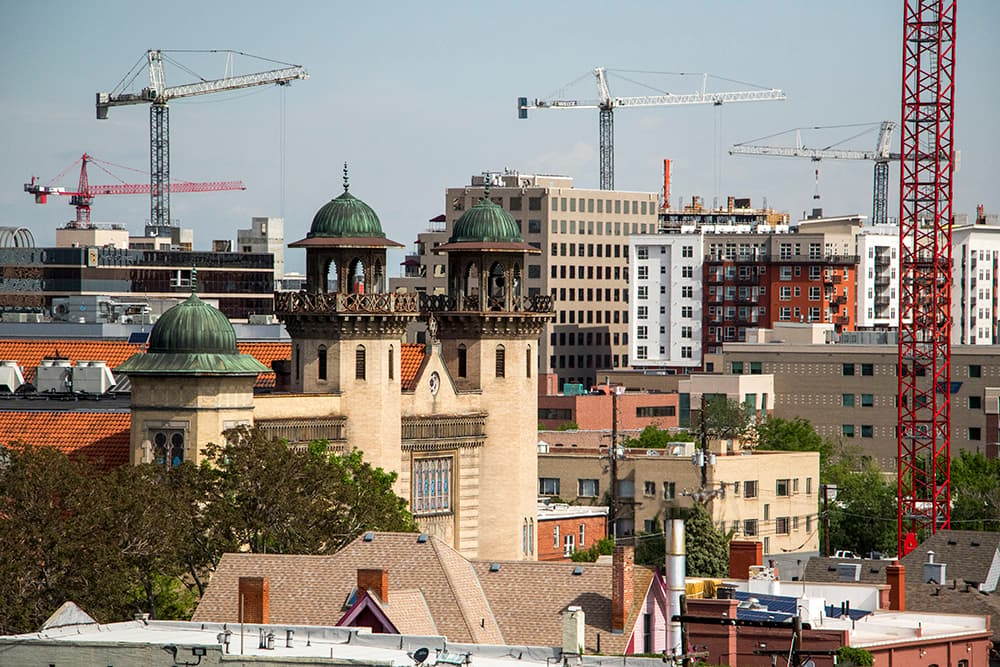Is it cliche to say District 10 is in the heart of Denver? Sorry.
D10 is smack in the middle of the city, spanning Capitol Hill, Alamo Placita, Uptown, Cheesman Park, Cherry Creek, Congress Park, Country Club and Belcaro. It's got Pete's Kitchen and a mall.
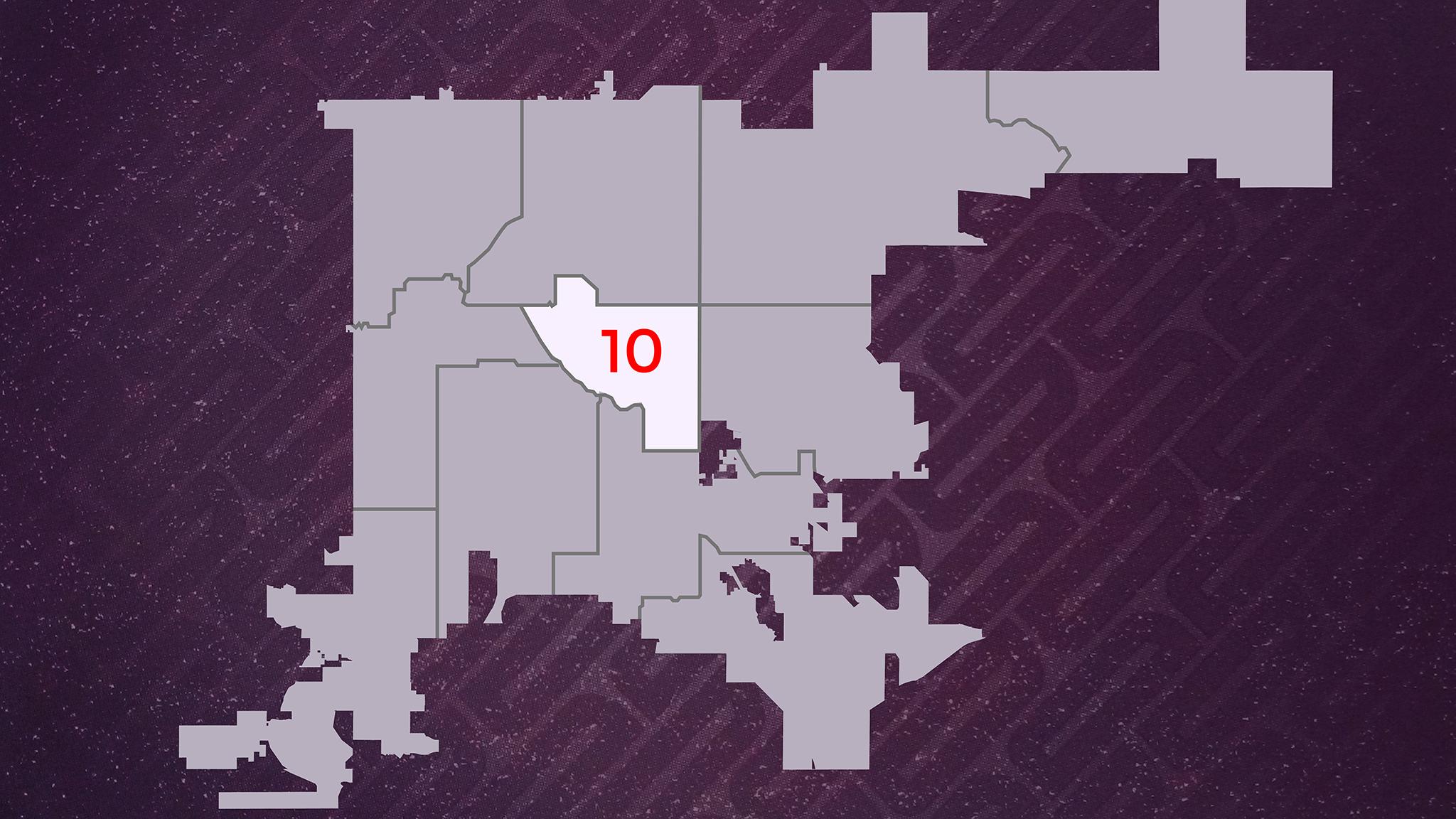
City Councilman Wayne New, elected in 2015, represents the area. Three men are running against him for the seat: Financial analyst and disability rights advocate Chris Hinds, longtime gubernatorial staffer and Serve Colorado Executive Director Antonio Méndez, and a mayoral appointee who helped run the Cherry Creek Arts Festival for years, Tony Smith.
Multiple candidates interviewed by Denverite called the district a "tale of two cities." They're not far off. In Country Club, the average household income hovers around $150,000, according to city demographic data. Nearby in Cap Hill, households average about $45,000.
Every candidate puts housing (including homelessness) and transportation at or near the top of his to-do list, but what that means varies by candidate and neighborhood. Every challenger questioned Councilman New's engagement with residents, too.
Here's what the District 10 candidates are about:
Chris Hinds
Hinds lives in North Capitol Hill, aka Uptown, and thinks New has neglected the west side of the district during his tenure. He envisions a new raft of voters, sparked by the last two national elections, ushering him into office by virtue of his housing and transportation platform. It centers on creating "20-minute neighborhoods."
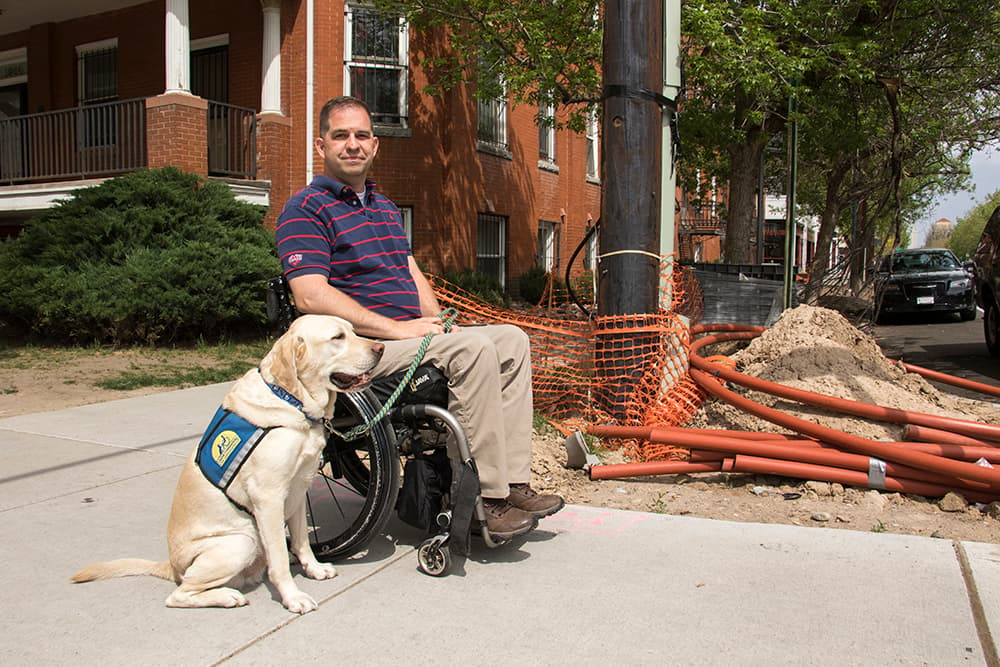
In his mind, every place in a neighborhood should be a maximum 20-minute walk, roll, bike ride or transit ride away. But it's not.
So Hinds said he would advocate for the city to take responsibility for public sidewalks, like it does with roads. He supports taxing property owners based on their frontage, an idea floated by pedestrian advocacy group WalkDenver. Money raised would fund sidewalk construction and repairs in a city where 40 percent of streets lack sufficient sidewalks, if they have them at all, according to city documents.
"We all deserve the freedom to get from A to B and feel safe while doing it," Hinds said. "And I think it's reasonable for the government to provide us with that freedom and safety."
Hinds speaks fluently about land use and transportation because he sat on the volunteer task force for Blueprint Denver, the city's new 20-year plan for land use and transportation.
The 20-minute concept is about the places you're going as much as it is about getting there, he said. So he supports tackling the housing shortage by allowing more places to live in neighborhoods that currently disallow them. Hinds supports duplexes and fourplexes in traditionally single-family neighborhoods in order to add density without changing a neighborhood's character.
"As I talk to people, they see that we have single-family homes in Denver, they see that we have multi-unit apartment mega-structures, and they don't recognize that there are things in the middle," Hinds said. "Denver's District 10 is a great model. Cap Hill has areas where a 5,000 square foot house has been subdivided into 1,000 square foot homes."
Something also needs to be done with the policy that lets developers opt out of building affordable housing on-site if they pay a fee, he said.
"If everyone's opting for the fee, then it appears that the scale is out of balance," Hinds said.
Antonio Méndez
Méndez, a Capitol Hill resident, was deputy chief of staff to two lieutenant governors -- Donna Lynn and Joe Garcia -- and now oversees Serve Colorado, the state government's commission for community service. He's no political novice and is looking to translate his skills from his state to his city.
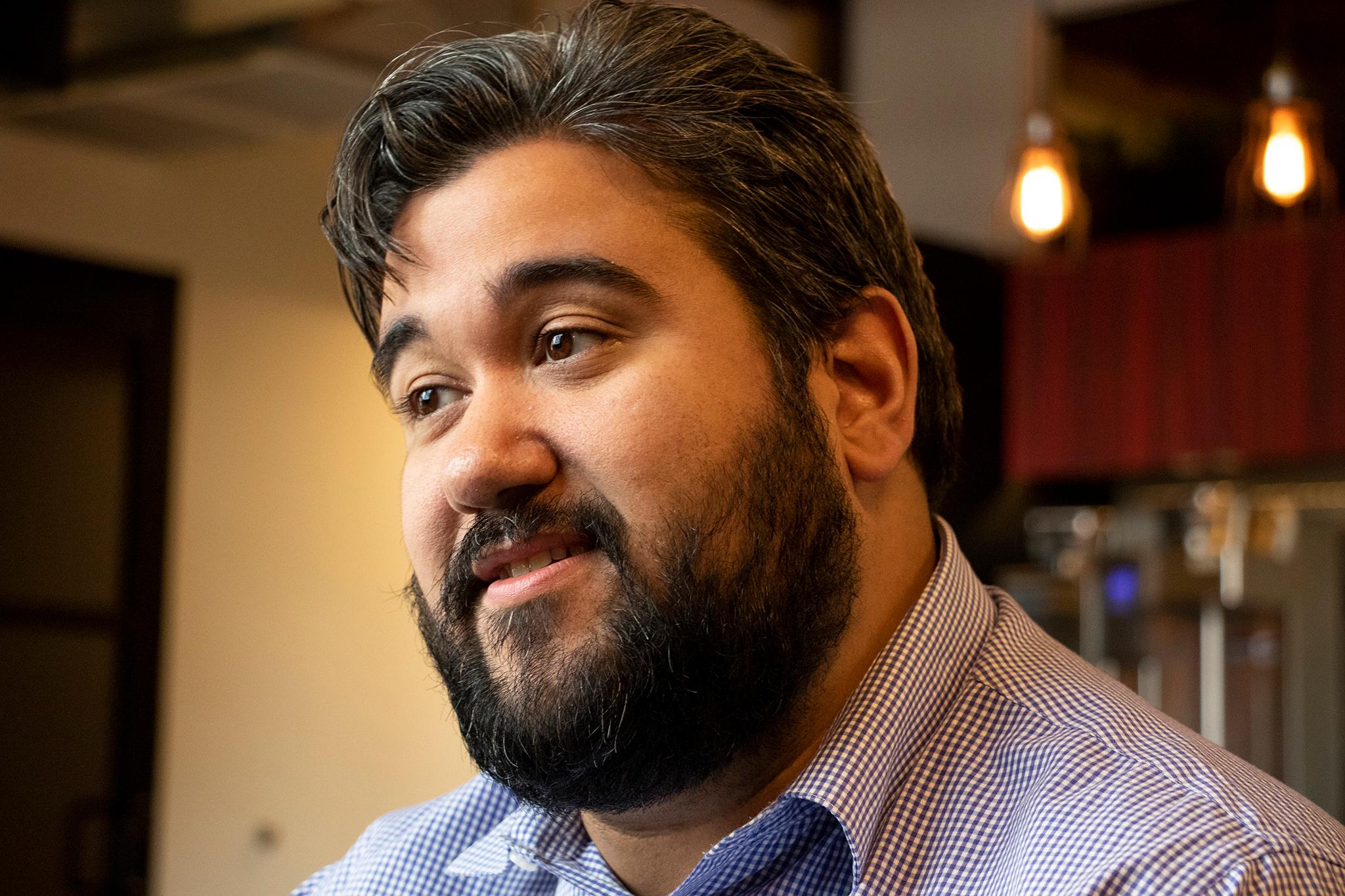
Councilman New can thank his support of President Trump's health care law for this challenger (though New takes issue with the assessment that he supports Trump -- more on that below). Méndez, who has family with preexisting medical conditions, said that stance launched him into the race.
"If my city council member thinks that's a good idea, what other cockamamie ideas does he have," Méndez said. "So I thought, 'I want to jump in, given my experience at the state, given my experience doing public-private partnerships. I think I could do a lot."
Specifically, the candidate wants the city to intervene more with the plight of people experiencing homelessness. Nonprofits -- albeit with significant city funds -- largely care for the city's unhoused population. Méndez thinks the epidemic is inherent to the government's day-to-day.
"I'm frustrated by the fact that if I see a dog who is left outside in the cold, I can call 311 and someone will respond," he said. "I don't know the number to call when I see someone who's homeless in the cold."
The candidate does not have a completely developed plan for treating homelessness yet, but one remedy is allowing more mixed-income housing in more neighborhoods, even when that means neighborhoods being altered.
"I don't reconcile the fact that the city is going to say the same," he said. "I think it's not realistic. The city of Denver has grown by over 100,000 people in the last several years, so for you to say, 'Yeah, I'd like it to stay the exact same as it was seven years ago' is unrealistic. These people need somewhere to live."
If elected, Méndez said he would try to incentivize for-sale condos to even out the housing market.
Transportation is a frustration for Méndez, who echoed something a would-be constituent told him: "Denver wins the gold medal in planning but the bronze in implementation." He pointed to the slogging Colfax Avenue Bus Rapid Transit project and Broadway bike lane as examples. Working with his colleagues to "push the mayor" on these and other issues would define part of his tenure, he said.
Méndez said he would focus on health in all forms, whether that's air quality, the opioid crisis or composting and recycling.
Wayne New
New, the incumbent, has held the seat for four years. Of the 13 members behind the dais, he is one of the quieter ones, and says his experience as an elected official combines with is 30-plus years running hospitals to qualify him for four more years.
He pointed to his vote for increasing Denver's affordable housing fund as a success. If re-elected, New says he will tackle homelessness and float an impact fee on developers to raise money for affordable housing and other needs.
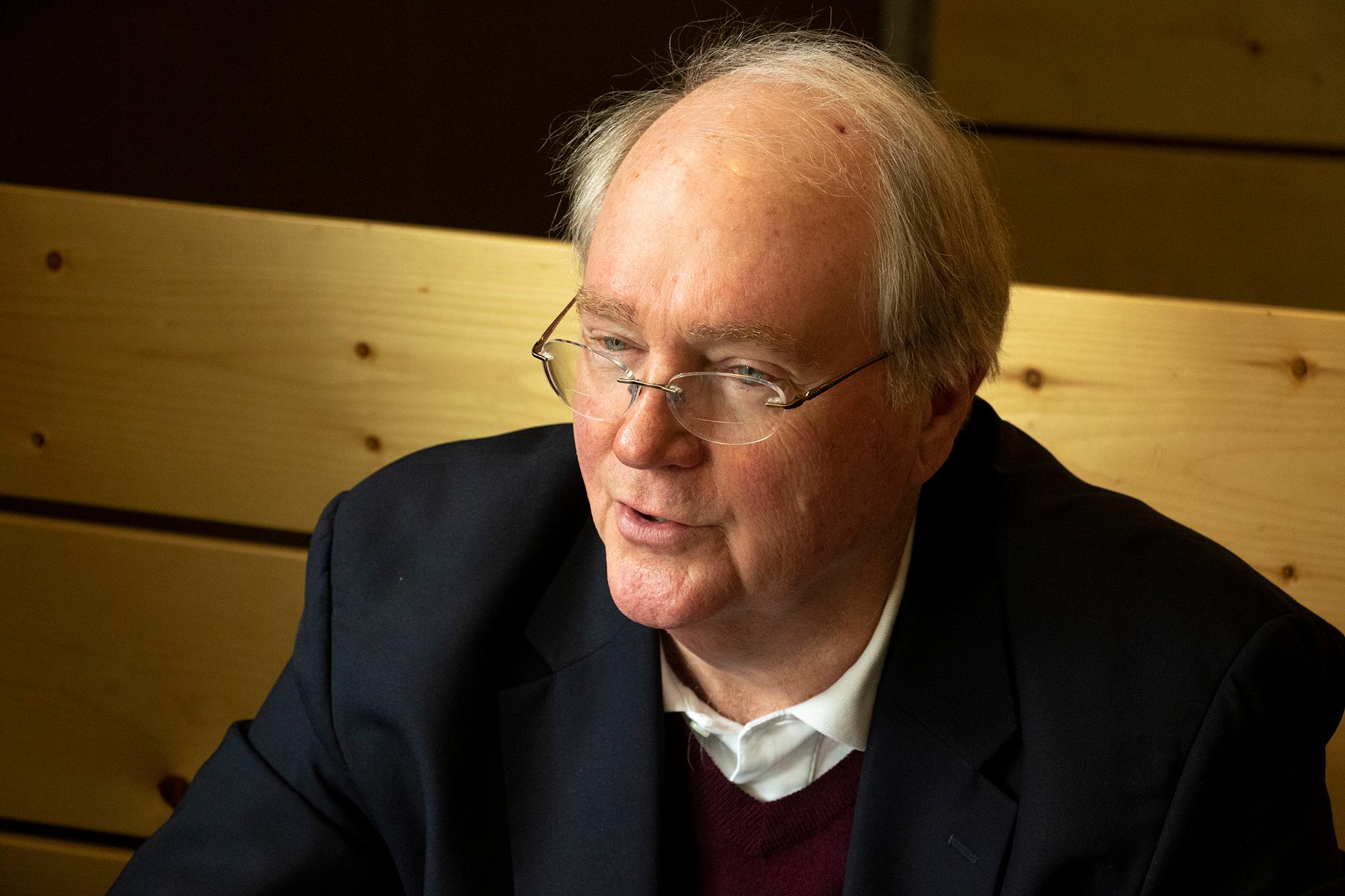
New said he would advocate for more support centers for people experiencing homelessness, like the one recently approved for Sunnyside, where people without homes could get support beyond a roof -- like for mental health. He believes too many people at shelters get nothing more than a bed and a quick meal, if that.
"You've got to get them off the street in order to provide the supportive services whether it's addiction, mental health, job training," New said. "To break that cycle of homelessness, you've got to get them in a controlled environment."
Like his challengers, the elected official is frustrated with the slow pace of change in some corners of the city, including the bus rapid transit project on Colfax. When he moved into his office four years ago, 20 binders worth of plans for the street sat on his wall, with few things to show for it.
"That's my number one concern," New said. "We're so good at creating strategy. We're not so good at creating action plans and the resources to implement it."
The councilman said he would not vote for the east Denver neighborhood plan unless it has a clear path to funding and implementation.
Asked how he would contribute to the politics of those things, he said he would float the idea of a developer impact fee -- something he advocated for in the past but said was shot down by Mayor Michael Hancock. A one-time fee would solve a lot of perceived money problems in his book.
"The mayor wouldn't do it," New said. "He just used part of it -- like a linkage fee for affordable housing -- which is peanuts. It amounts to nothing when other cities were getting $100 million a year for a one-time fee for new development. Can you imagine how much money we would've generated in the last four years with all the construction that's been going on?"
Every challenger said New doesn't communicate well enough with constituents, basing the claim on conversations with residents. But New cited communication as one of his best attributes.
He sends monthly newsletters and email blasts, and invites constituents to coffee every Friday. He also does surveys to gauge constituents' opinions on critical issues. He typically receives between 800 and 1,000 responses, he said.
As for his stance on healthcare, New says he fully supports Obamacare's coverage for pre-existing conditions, greater access to care, and Medicaid expansion.
"However, the high cost of health insurance and costs must be addressed in order to help citizens who cannot currently afford health insurance and who do not qualify for Medicaid," he said in a statement.
Tony Smith
Smith spent 18 years with the Cherry Creek Arts Festival and is a mayoral appointee to the Denver Commission on Aging. He also sits on the Parks and Recreation Advisory Board.
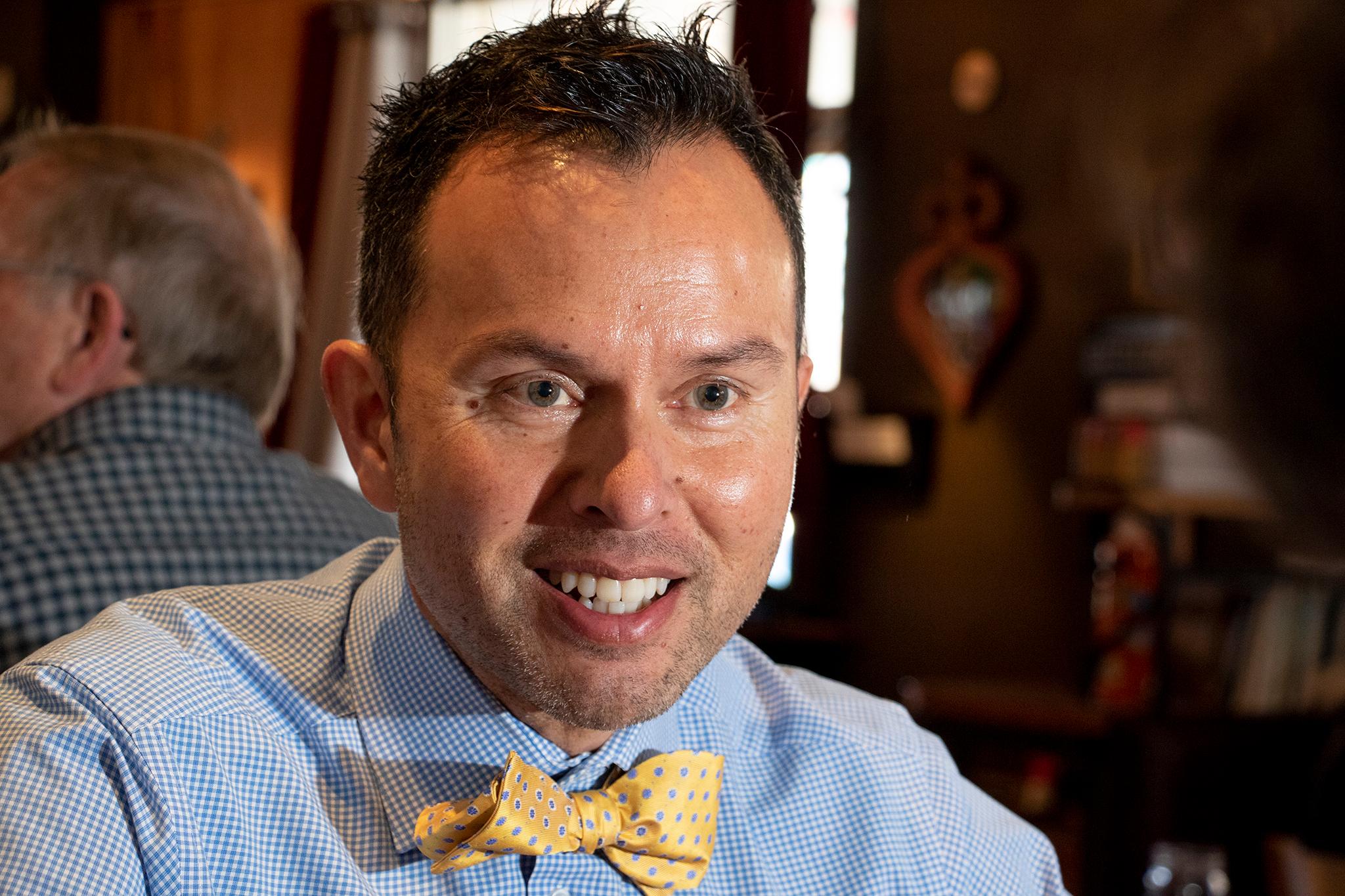
Smith, a member of the LGBTQ community, is running because he woke up after President Trump's election thinking, "We all need to feel represented and have a connection to local government," he said.
His platform covers affordable housing, "neighborhoods" and well-being. The thrust of his candidacy hinges on two big ideas: One, that Denver's doing pretty well and has a lot of government services to offer -- people just need to be connected to them. Two, people need someone who will listen to their needs and pull the strings to meet them.
"The number one thing is about having an ear to the ground for what people need and then having the energy and passion to make those things happen," he said.
The candidate offered no new policy ideas for increasing affordable housing, but said he supports existing mechanisms, like the height incentive for developers aimed at generating attainable homes near transit.
"With housing, we have so many awesome city agencies doing great work to help solve affordable housing," he said. "First of all, we've got to build more houses -- we all know that -- but we need to have one hand shaking the hand of developers to say, 'We need to build more housing,' and the other hand needs to be holding people that cannot afford housing."
He supports the affordable housing fund, state efforts to address renters rights and "what support can be provided at the municipal level," according to his website, as well as "the reformation of outdated zoning codes." Smith also name-dropped Sunshine Home Share, a nonprofit that connects older adults with younger roommates. The candidate is big into historic preservation, too.
Smith believes many of Denver's problems can be solved if everybody just got along. He would bridge gaps as a "connector," he said, in part by pushing the Denver Days program, which helps residents have block parties.
"The minute you know your neighbor, the minute there's less fear, and when there's less fear in the world, it makes it a better place," he said. "I want to make District 10 a model for civic engagement that's a model not just for Denver, but for the country. And so that means engaging our neighbors to get to know each other. I feel like great cities are built one neighbor, one neighborhood at a time."
The city has been reactive and slow to act on its growth, according to Smith, who pointed to the affordable housing fund arriving well after the housing crisis began. He also claimed the current City Council is not a "collective entity" or a "cohesive team," but could not provide specific examples.
Who's got money?
Here's how much the candidates have raised, according to the most recent campaign finance report at publication time. Click on the candidate's name to dig deeper into who is giving them money.
Hinds raised about $49,000, including in-kind donations. About $8,000 came out of his own pocket.
Méndez has raised about $20,000, and donated about $2,000 to himself.
New has raised $87,000, with about $2,300 out of his household's pocket.
Smith has raised more than $51,000, including in-kind donations. He gave himself $21,000.

